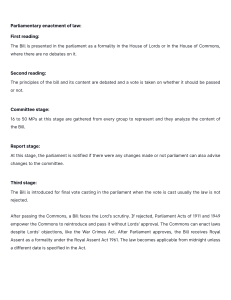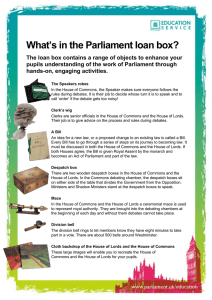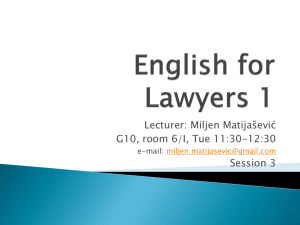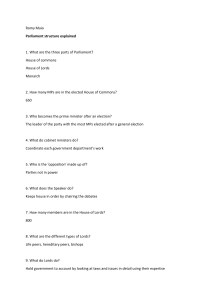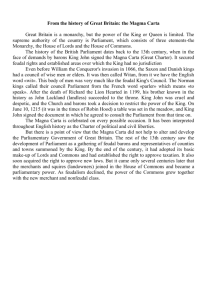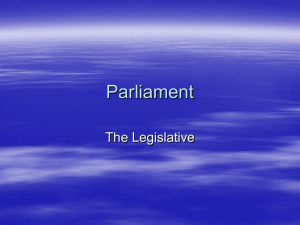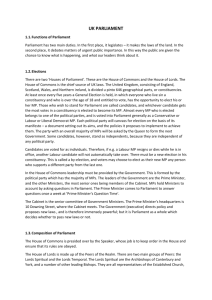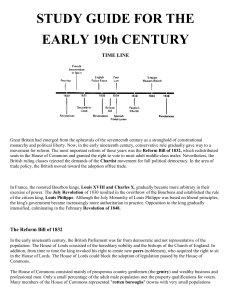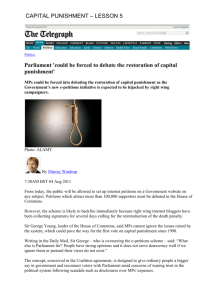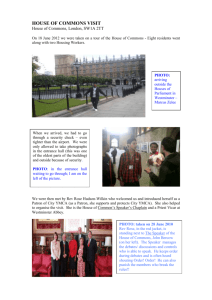How-laws-are-made
advertisement
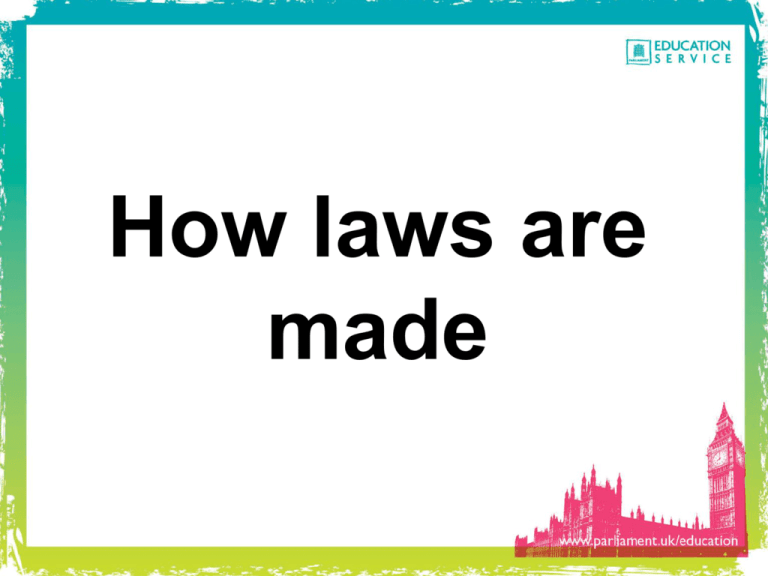
How laws are made Types of Bills Public Bills Private Bills Intended to affect one particular area or organisation Personal Bills Affect one or two people. Always begin in the Lords Intended to affect the public as a whole Government Bills Private Members’ Bills Steered through Sponsored by an Parliament by a minister individual MP or a from the appropriate Peer government department Consultation stage First Reading The government makes a draft of the bill and asks senior officials to make comments. The government announces the bill by reading out its title in the House of Commons to let everyone know about it. Second Reading This is the main debating stage where all MPs can discuss the bill, ask questions and vote on it. It could be voted out at this stage. Committee Stage A smaller group of MPs look at the bill in detail. They may make changes, called ‘amendments’, based on their discussions. Report Stage Amendments made during the Committee Stage are reported to everyone in the House of Commons. MPs may vote on these amendments. Third Reading Overall consideration of the bill in the House of Commons and final votes to decide whether it goes any further. The Lords Stages The bill goes to the House of Lords who follow similar stages. They can suggest amendments to the bill and send it back to the Commons, who may send it back again until an agreement can be reached. If no agreement can be reached, the House of Commons can eventually vote to pass the law without consent from the House of Lords through an Act of Parliament which gives them more power over the House of Lords. The Queen signs-off the bill as a new law or ‘Act of Parliament’. The Royal Assent Consultation Stage Consultation Drafting Pre-legislative Scrutiny House of Lords First Reading Second Reading Committee Stage Report Stage House of Commons First Reading Second Reading Third Reading Royal Assent Committee Stage Report Stage Third Reading ACT OF PARLIAMENT
